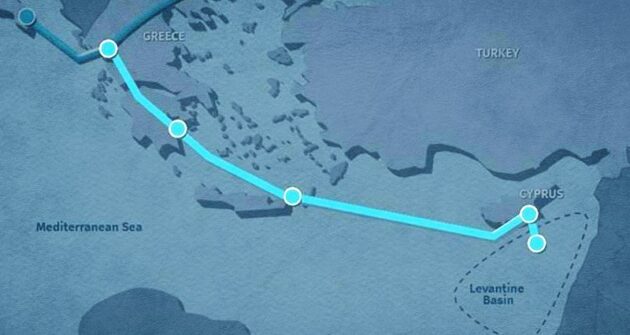In recent days, the invasion of Russia has been at the forefront of international discussion. Despite the numerous losses, civilian deaths, displacement of people, and Putin’s aggression, the difficulty of demand and supply in the oil business remains one of the critical endpoints of the invasion.
Nicholas Aderinto
cfact.org

The invasion of Ukraine by the Kremlin has had a knock-on effect on energy prices worldwide. In the last week of February, oil prices surpassed $100 per barrel for the first time since 2014. These repercussions were expected, given Europe’s reliance on Russian natural gas.
The world — Europe in particular — needs a solution to their reliance on Russian oil. To counterbalance this, western nations must increase their natural gas investments, mainly through the construction of the Eastern Mediterranean pipeline.
Russia is responsible for about a quarter of Europe’s natural gas consumption. It also supplies the majority of crude oil imports to the European Union, making it a significant player in the bloc’s energy market. Dependence on Russian oil differs from country to country. While Portugal and Spain, for example, do not rely wholly on Russian energy, Germany imports more than 50% of its natural gas and more than 75% of its crude oil from Russia.
Only a few European countries are turning their backs on Russian energy. Even Paris, which uses nuclear power to generate a large portion of its energy, still imports fossil fuels from Russia. Nonetheless, countries moving away from Russian oil may be compelled to rely on Russian energy as the clamor to shift away from nuclear and coal power sources grow louder, particularly in Germany.
Europe’s energy dependence has the potential to strain relations between the US and European countries, as well as destabilize institutions such as the North Atlantic Treaty Organization (NATO). The ramifications of this are already being felt, as most of Russia’s justifications for the unprovoked attack are at the heart of Ukraine’s relationship with NATO.
Providing Europe with a new natural gas supplier would help the West break free from Russia’s energy hegemony.
Enter the EastMed pipeline. Established in 2016, the EastMed Gas Forum. The EastMed connects the gas reserves of the eastern Mediterranean to Greece. Various agreements have been signed between the countries involved. The United States attended the 3+1 summit in 2019 with the definitive aim of completing the €6 billion ($6.8 billion) line by 2025. However, due to Turkish influence and the pandemic’s negative impact on the world economy, the needed finance was never acquired.
Surprisingly, the EastMed pipeline is in danger of being abandoned following the US government’s recent withdrawal of support for the project. The US government declaration could influence the progress of the decade-long project. The decision to terminate assistance for the EastMed project would jeopardize European security and allow Russia to strengthen its energy domination in European gas markets. As Europe grapples with record-high gas prices and the US scrambles to sanction Russia’s Nord Stream 2 pipeline to Germany, investing in the EastMed pipeline is the best strategy.
If completed, the EastMed pipeline project could improve Europe’s energy security by diversifying its routes and its natural gas suppliers, as well as providing opportunities for economic development in the eastern Mediterranean region.
In light of the current situation in Ukraine, the US decision to pull out support for the project should be reversed.
Martin comments: But it won’t be reversed, and EastMed won’t go ahead any more than Keystone XL, because Western governments all seem to be occupied by Useful Idiots busy wringing their hands over “Russian aggression” while actually aiding and abetting whether wittingly or unwittingly. I watched in disbelief a couple of days back as Trudeau warned of “creeping communism and totalitarianism” in the West. Good God! Take a look in the mirror, JT, and think on how you treated those Freedom Convoy protestors!

Get your copy from our Online Store or your local book and magazine retailer
Australian Retail Locations » Uncensored Publications Limited
New Zealand Retail Locations » Uncensored Publications Limited
As censorship heats up and free thought becomes an increasingly rare commodity, we appeal to our readers to support our efforts to reach people with information now being censored elsewhere. In the last few years, Uncensored has itself been censored, removed from the shelves of two of our biggest NZ retailers – Countdown Supermarkets and Whitcoulls Bookstores – accounting for 74% of our total NZ sales.
You can help keep the Free Press alive by subscribing and/or gifting a subscription to your friends and relatives.








